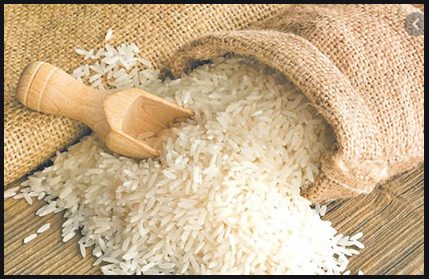It is a fact that Ghana depends largely on imported rice to make up for the deficit in domestic rice supply. Rice is one of the most staple foods consumed locally, but domestic production accounts for only one-third of consumption.
Available data from the Observatory of Economic Complexity (OEC) suggests that in 2020 Ghana imported US$391million worth of rice, becoming grain’s 20th-largest importer in the world.
However, high labour costs and huge import duties on inputs and machinery remain major challenges faced by rice producers in the country.
Indeed, there is high demand for domestically produced rice; but due to the challenges outlined above in producing large quantities to meet demand, local producers are unable to meet that demand.
Government is therefore being impressed upon to help create a conducive environment that will make production and processing easier for those engaged in the rice value chain, so as to increase production and meet the rising demand.
For instance, government can reduce taxes on imported inputs like fertiliser and machinery along with access to bank loans at reasonable rates, which would go some way to improve productivity.
This is because in recent times there has been a veritable rise in demand for local rice because of increased awareness and modernised and improved ways of production. Increasingly, farmers employ the use of de-stoner machines to remove stones from paddy rice during production.
The lack of irrigation infrastructure, high cost of agro inputs like fertilisers and weedicides, are among major problems affecting rice farmers in the country. This has been exacerbated by poor road networks and unfavourable exchange rates.
Ghana has the potential to reach self-sustainability in rice production, but urban consumers prefer imported rice for its reasonable pricing and quality. These notwithstanding, local rice has not matched the consistency levels of imported rice.
Approximately 67% of the population (non-poor segment) is now consuming rice on regular basis. This change of habit combined with the population growth (2.4% per year according to World Bank data), explain the drastic increase of rice consumption in Ghana.
A rice breeder with the Council for Scientific and Industrial Research–Crops Research Institute (CSIR-CRI) is confident that the country can achieve self-sufficiency in rice production.
A former Minister of Food and Agriculture, Dr. Owusu Afriyie Akoto, expressed confidence that the nation will attain rice self-sufficiency by 2023. This only goes to demonstrate the real potential even though we have not yet attained self-sufficiency.










